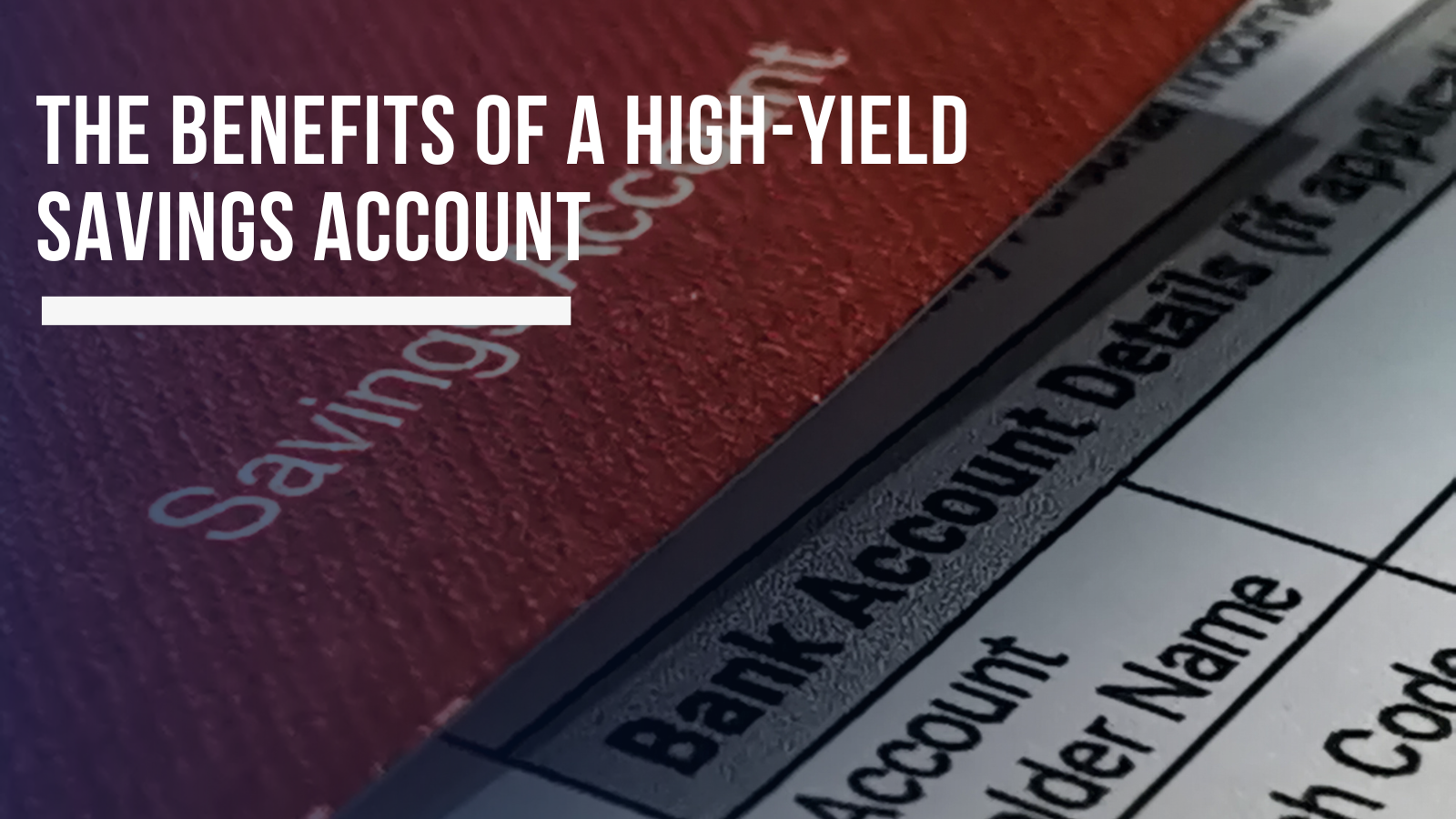The Benefits of a High-Yield Savings Account
Submitted by Neville Associates on January 29th, 2024
Everyone should have a savings account. Savings are important so you can work toward your financial goals and have funds prepared in case of an emergency. Having multiple savings accounts can be a good idea, too, one or more of which could be a high-yield savings account.
Use this guide to help you determine if a high-yield savings account is right for you and explore your options of top-rated accounts.
Savings vs. high-yield savings
There are differences between a regular savings account and a high-yield savings account, but both are good to have for different purposes.
Higher APY (annual percentage yield)
The national annual percentage yield (APY) of a regular savings account is 0.06 percent. Regular savings offer less requirements but also less of a reward. High-yield savings offer around a 0.4–0.55 percent APY, but they can often require stricter guidelines for an approved application.
It’s important to note that APY is the amount of interest or money earned in your account over a year, which is different than an interest rate, which doesn’t factor in compounding.
Safety
Not all savings accounts are created equal. Regular savings accounts are not always insured. However, high-yield savings accounts are almost always insured up to $250,000 per depositor by the Federal Deposit Insurance Corporation (FDIC) or National Credit Union Administration. This means if the financial institution goes bankrupt, you won’t lose your money.
How to choose an account
Shop around to find the best account that works for your financial goals. Here are a few factors and top-rated accounts you’ll want to discuss with your financial advisor.
Factors to consider
When rating and choosing a bank or financial institution, it’s important to consider the following. Look for accounts that have a high enough APY for your financial goals and low enough service charges that it won’t break your budget. Some places charge monthly fees or require you to keep a minimum balance to waive that fee, so be cautious and read the fine print before signing up for an account.
Ease of access
You’ll want to be able to access your account easily and securely 24/7. Research if your prospective bank uses an app and if it allows you to withdraw or deposit money at any time. Be willing to look beyond big banks too. Some smaller banks or online only institutions offer great user experiences for depositing and withdrawing. If you already have a checking account at one bank, you can ask about their high-yield savings accounts offerings. The bank might be able to give you exclusive rates and waive fees since you’re an existing customer.
Top accounts
After reviewing over seventy institutions and banks nationwide, NerdWallet rated these as the consumer and expert top-rated high-yield savings accounts to consider with your financial advisor. *Data as of August 2021.
- Marcus by Goldman Sachs Online Savings Account – APY: 0.50%
- Citi® Accelerate Savings – APY: 0.50%
- American Express® High-yield Savings Account – APY: 0.40%
- Nationwide My Savings – APY: 0.20%
- Varo Savings Account – APY: 0.20%
- Discover Bank Online Savings – APY: 0.40%
- Comenity Direct High-yield Savings Account – APY: 0.55%
- Axos Bank® High-yield Savings – APY: 0.66%
It can be a good idea to keep a diversified portfolio of accounts for your financial goals, which could include a high-yield savings account. When you compound money at a higher rate, you are generating extra cash that allows you more wiggle room to grow your assets where you see fit. Use this guide as a springboard to your research along with consulting your financial advisor.
Our editorial team receives no direct compensation from any of the banks, institutions, or sources listed.
Important Disclosures
The opinions voiced in this material are for general information only and are not intended to provide specific advice or recommendations for any individual.
All information is believed to be from reliable sources; however LPL Financial makes no representation as to its completeness or accuracy.
This article was prepared by ReminderMedia.
LPL Tracking #1-05218835

